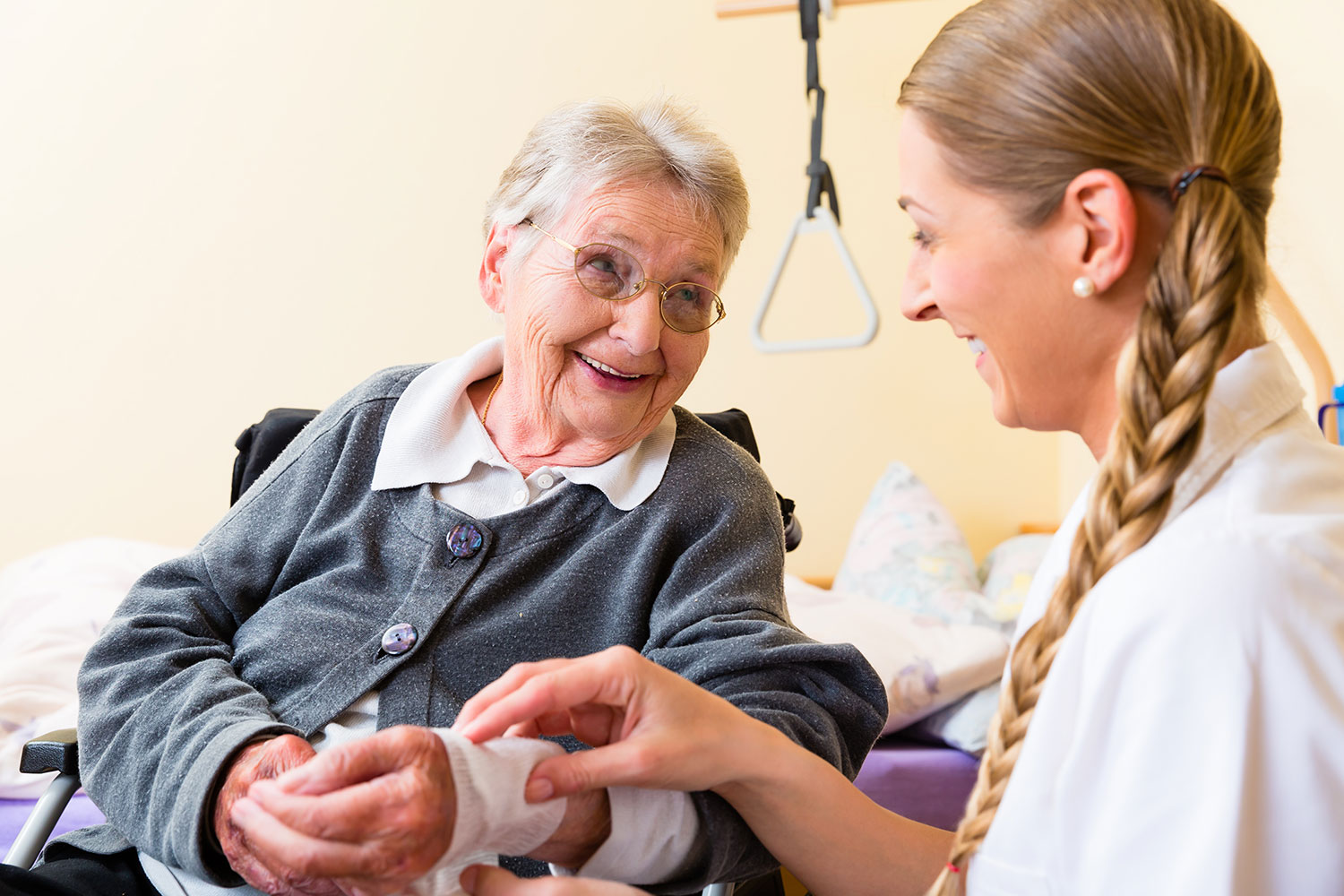Each patient with an acute or chronic wound presents unique care requirements, depending on the underlying condition, wound ethology, and individual health status. However, the primary goal remains the same: to facilitate optimal recovery and enhance the quality of life for your loved one.
Complex wounds, whether acute or chronic, often involve multi-faceted care approaches due to their intricate nature. These wounds may not heal with traditional methods alone, making it crucial to address all contributing factors.
Key aspects of wound management include:
- Comprehensive Assessment: Each wound is carefully assessed, considering factors like type, size, depth, presence of infection, vascular health, and underlying diseases (such as diabetes, peripheral artery disease, or venous insufficiency). This thorough evaluation allows us to create an individualized treatment plan.
- Personalized Treatment Plan: Effective wound healing requires customized care, which can include specialized dressings, debridement, advanced therapies like negative pressure wound therapy (NPWT), or the use of bioengineered skin. The treatment plan is tailored to address the wound’s specific needs while also considering the patient’s overall health.
- Infection Control: Chronic wounds are particularly vulnerable to infection, which can impede healing. Close monitoring for signs of infection (such as increased redness, warmth, or discharge) is essential. Our team utilizes advanced wound dressings and, if necessary, antimicrobial treatments to prevent and manage infections.
- Pain Management: Wound-related pain can be a significant barrier to healing. A comprehensive pain management plan, including topical analgesics, systemic pain relief, and adjustments to wound care techniques, is provided to ensure comfort and minimize discomfort during recovery.
- Nutritional Support: Adequate nutrition plays a critical role in wound healing. Our team works closely with dietitians to optimize the patient’s nutritional intake, ensuring they receive the essential vitamins, minerals, and protein needed for tissue repair and regeneration.
- Patient and Family Education: Providing education on proper wound care, signs of infection, and lifestyle adjustments (such as managing underlying health conditions and improving circulation) is an integral part of the healing process. Family members are trained to support their loved ones with dressing changes and ongoing care needs, ensuring consistency and proper follow-up.
- Ongoing Monitoring and Adjustments: Wound healing is an evolving process that requires regular monitoring. Our team conducts frequent follow-up assessments, adjusting the care plan as needed to address complications, optimize healing, and ensure long-term recovery.

